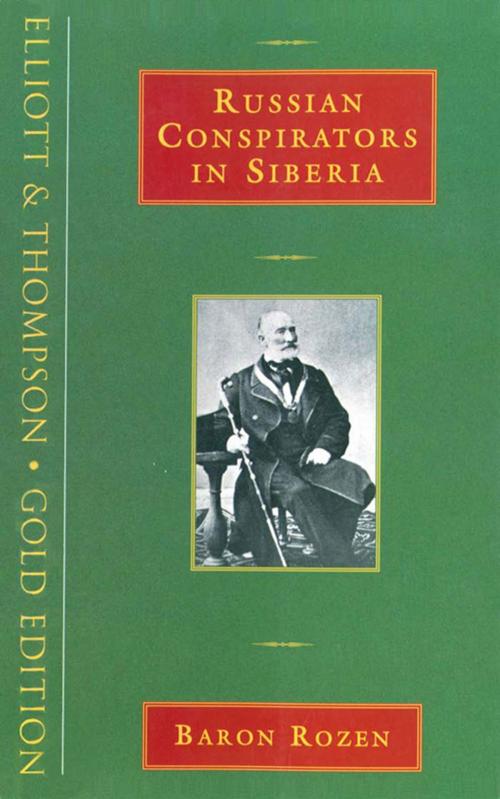| Author: | ISBN: | 9781908739506 | |
| Publisher: | Elliott & Thompson | Publication: | May 1, 2013 |
| Imprint: | Elliott & Thompson | Language: | English |
| Author: | |
| ISBN: | 9781908739506 |
| Publisher: | Elliott & Thompson |
| Publication: | May 1, 2013 |
| Imprint: | Elliott & Thompson |
| Language: | English |
Following Napoleon's defeat, a generation of young Russian officers was acutely conscious of the backward social and political conditions in their own country, compared to those in France. Taking advantage of the confusion after Alexander I's sudden death, on December 14, 1825 the officer-conspirators gathered their troops in St Petersburg to demand, among other things, a constitutional monarchy. The revolt's suppression was brutal: executions, hard labor and perpetual exile for the 121 ringleaders, many of whom belonged to Russia's wealthiest and most influential families. But thanks in part to the wives who joined them, the Decembrists maintained coherence as a group, and those who survived for the new Tsars amnesty in 1856 returned home as living legends. The Estonian Baron Rozen was scarcely more than a bystander at the events of December 1825, but he was punished alongside the ringleaders and shared their fate. His account of the rebellion itself, of the years in Siberia and his subsequent exile, remains the best primary source for what happened. First published in his native German in 1869 (and in English in 1872), this vivid, accurate memoir stands as a fascinating precursor to the testaments of later political prisoners such as Mandelstam, Ginzburg, Solzhenitsyn and Havel.
Following Napoleon's defeat, a generation of young Russian officers was acutely conscious of the backward social and political conditions in their own country, compared to those in France. Taking advantage of the confusion after Alexander I's sudden death, on December 14, 1825 the officer-conspirators gathered their troops in St Petersburg to demand, among other things, a constitutional monarchy. The revolt's suppression was brutal: executions, hard labor and perpetual exile for the 121 ringleaders, many of whom belonged to Russia's wealthiest and most influential families. But thanks in part to the wives who joined them, the Decembrists maintained coherence as a group, and those who survived for the new Tsars amnesty in 1856 returned home as living legends. The Estonian Baron Rozen was scarcely more than a bystander at the events of December 1825, but he was punished alongside the ringleaders and shared their fate. His account of the rebellion itself, of the years in Siberia and his subsequent exile, remains the best primary source for what happened. First published in his native German in 1869 (and in English in 1872), this vivid, accurate memoir stands as a fascinating precursor to the testaments of later political prisoners such as Mandelstam, Ginzburg, Solzhenitsyn and Havel.















